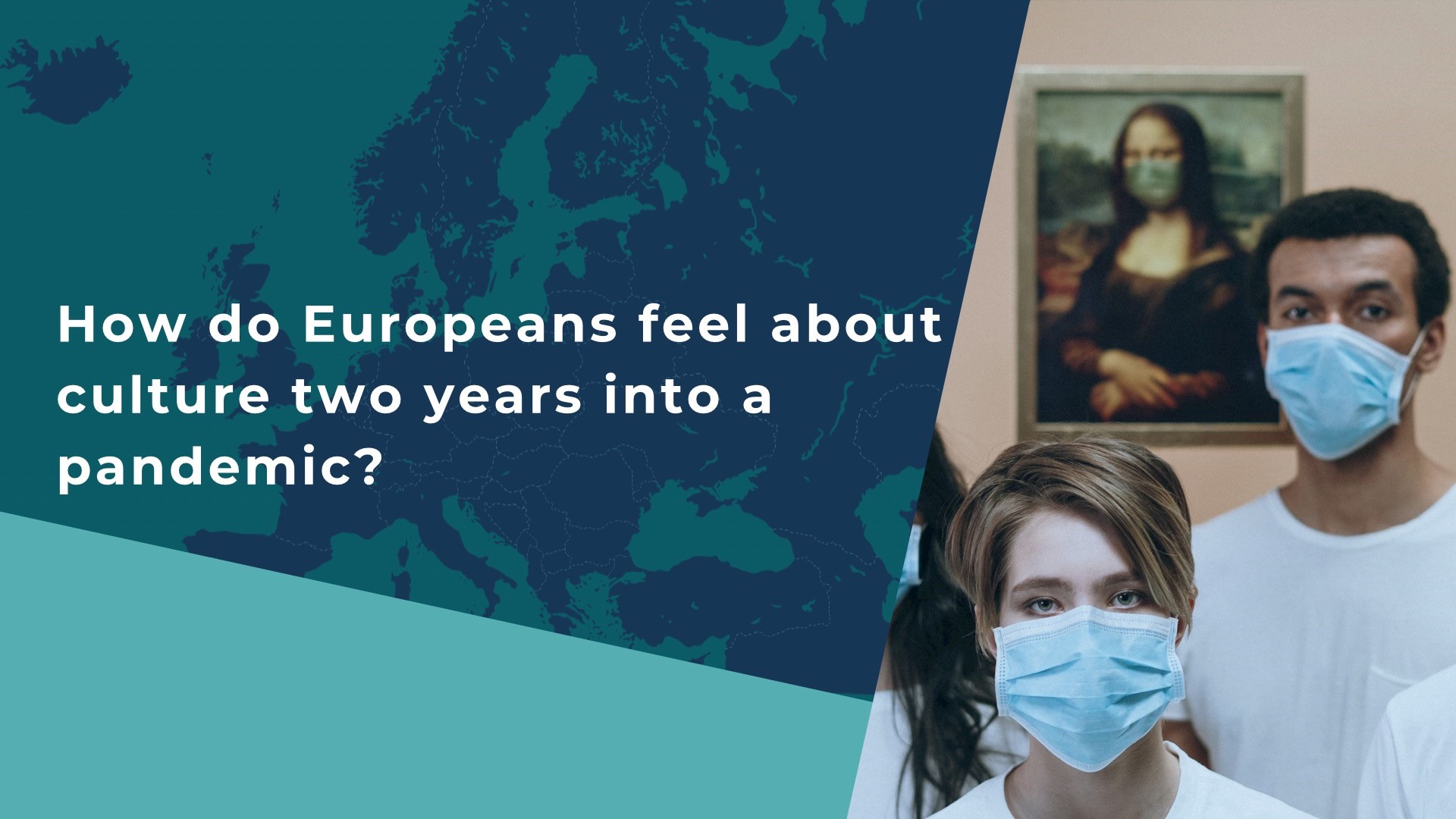In February 2020, the INVENT project commenced having planned out the multiple interdisciplinary research queries set to be conducted over the course of the project. Not long after, the Covid-19 pandemic introduced itself as an unforeseen factor and formidable force that has gone on to interlace itself throughout nearly every stage of the project thus far.
What Covid has brought our study of Europeans’ understanding of culture can be described as paradoxical. On the one hand, Covid and its lockdowns have placed an unprecedented strain on the cultural sector and its workers, inhibiting Europeans’ usual cultural participation (visiting museums, traveling abroad, attending music or theater shows etc.) predating Covid times. While on the other hand, the circumstances brought about by the pandemic have also brought about a newfound awareness of culture among Europeans and an appreciation for its role in their lives.
So while participating in cultural events occurred less or in an altered state, this lack of participation has perhaps attuned people perhaps more than ever to the value culture holds in their life. Adjusting to present circumstances, parts of our survey research have inquired after Europeans’ relationship to culture specifically in light of the Covid pandemic.
2020
In our first exploratory survey dating the summer of 2020, most of Europe was coming down from the first wave of the pandemic. While since then there have been so many to the point where some of us might have lost count, the first wave remains vivid in most of our memories. Throughout the exploratory survey it became clear that people identify the importance of culture in everyday life, so when asked what implications the pandemic brought, we saw mixed answers.
Unsurprisingly, many respondents noted the negative impact Covid has had on their cultural practices. They further expressed feelings of loss or having missed out on meaningful social interaction. At this stage in the pandemic, there were also those who identified positive outcomes for their cultural consumption as a result of the pandemic. During the first wave many were prompted to rediscover or pick up new hobbies such as reading, crafting, public singalongs or nature walks. There were also those among the survey who praised the innovation taking place in the cultural sector, for instance, the possibility to attend music festivals online.
2021
Fast-forward one year to the summer of 2021 when the large-scale INVENT survey was distributed among the 9 different member countries of the project. At this stage, the pandemic has lasted well over a year and Europeans have experienced multiple periods of lockdown and restrictions but also increasingly more freedoms being restored at the hand of vaccinations being introduced. These turbulent times of regulations have given Europeans ample time to reflect.
Desiring to inquire after Europeans’ cultural participation and how it relates to their wellbeing, we asked respondents of the survey what leisure activities they missed most and perhaps continue to miss. From a pre-selected list of activities, the two categories that were missed most were Going on a holiday and Dining out at a restaurant with a distribution of 18% each. Other activities like Going to a bar or Going to a concert were missed with varying lesser degrees and different distributions per country (a more detailed breakdown can be found in our newsletter downloadable on our website).
Besides the pre-defined list, respondents were free to include their own most-missed leisure activities in the form of an open answer. What stands out from this data, among the novel activities and hobbies mentioned, is the fact that many people listed the ‘activity’ of ‘being with friends and family’ or ‘interacting with social contacts’. This is hinting at the deeper-rooted consequence of the pandemic: while our routine leisure activities were missed initially, ultimately people miss and crave the social intimacy that these cultural leisure activities have to offer.
2022
Fast-forward to today, the pandemic as declared by the World Health Organization is set to meet its two-year anniversary in March of this year. This winter, the new omicron variant has once more plunged many European countries into lockdowns of varied intensities. Two years in, we notice that the dialogue appears to have shifted. The urgency to return to a society in which social interaction is possible as before appears to have intensified, and people fear for the long-term consequences from the strain that many sectors including education, hospitality, and the cultural sector have had to endure.
In 2022 the INVENT project moves on to additional studies and new methods for expanding our understanding of the societal value of culture, one of which is a scraping of petitions and citizen initiatives that exist online, to better capture the variety of cultural causes that Europeans are vocal about. While much remains uncertain regarding the pandemic, one thing is certain: the effects of Covid on society will surely continue to, at least in part, impact how we value culture.
#JoinTheConversation
WE WANT TO HEAR FROM YOU! In what ways have your opinions on or relationship to culture changed since before the pandemic started, during the first waves of lockdown and now nearly two years into it?
Head on over to our social media channels and #JoinTheConversation and let us know.



 This project has received funding from the European Union’s Horizon 2020 research and innovation programme under grant agreement No
This project has received funding from the European Union’s Horizon 2020 research and innovation programme under grant agreement No
Leave A Comment